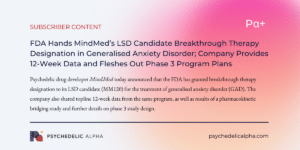Psychedelics-related ballot initiatives have been successful – by significant margins – in both Oregon and Washington, DC
As such, psychedelics are effectively decriminalised for approximately 7 million people in the United States, when including the four cities that have already passed similar motions.
Initiative 81, DC
In Washington, D.C. voters came out in favour of Initiative 81: the Entheogenic Plants and Fungus Measure.
As the first swathe of results came in, there was a convincing lead for the For vote with approximately 77% in favour after a third of the votes were counted.
This results in the effective decriminalisation of non-commercial distribution, possession and use of psychedelics such as psilocybin and ibogaine by ordering police to treat them as the lowest law enforcement priorities.
Under this initiative, entheogenic plants and fungi are defined as including ibogaine, dimethyltryptamine, mescaline, psilocybin, or psilocyn.
Measure 109, Oregon
Measure 109 in Oregon achieved a Yes vote, mandating the creation of the Oregon Psilocybin Services Program.
This allows for the production, administering, and sale of psilocybin mushrooms by licenced facilities.
There will now be a 2-year developmental period which will allow for the necessary preperation of this Program.
Oregon’s approach to Psilocybin provision is characterised by a great deal of structure, with the creation of the Oregon Psilocybin Services Program. DC’s approach, meanwhile, is a broader decriminalisation of psychedelic plants and fungi.
Oregon and DC now join the cities of Denver, Colorado, Santa Cruz and Oakland, California, and Ann Arbor, Michigan in their efforts to begin to scale back America’s war on (psychedelic) drugs.
This cross-coast psychedelic decriminalisation is a major signifier of the legitimacy afforded to these substances by the American public, with approximately 5 million Americans affected.






